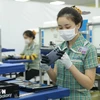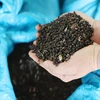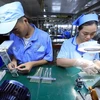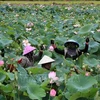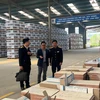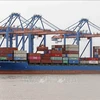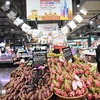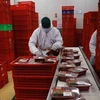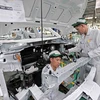The Ministry of Agriculture and Rural Development is planning to invest in advanced technologies to enhance the value of the coffee sector through improving productivity and product quality.
This is part of activities to implement the ministry’s master plan to develop the coffee processing system by 2020 in a bid to increase the added value of domestic coffee products.
The sector also seeks to foster connections between farmers and processing enterprises to ensure sustainable development of the sector.
By 2020, the sector aims to to increase coffee products for consumers to at least 25 percent of the total coffee output, of which the total yearly productivity of roasted and ground coffee will reach 50,000 tonnes and that of instant coffee will be 255,000 tonnes.
By 2030, it is expected that roasted and ground coffee output will exceed 50,000 tonnes per year while instant coffee will exceed 350,000 tonnes per year to meet domestic demand and export.
According to Vo Thanh Do, Deputy Head of the ministry’s Agro-Forestry, Seafood Processing and Salt Industry Department , there are currently 239 coffee processing firms across the country, the majority of which are located in the south-eastern and Central Highlands regions.
Nearly 80 percent of the firms are non-state enterprises and 10 percent are foreign. Non-state enterprises produce more than 1.24 million tonnes of coffee each year, including coffee beans, roasted and ground coffee and instant coffee, making up of 96 percent of the nation’s total output.
Vietnam is the leading country in robusta coffee production and exports and the world’s second biggest coffee bean producer and exporter with 641,700 hectares of coffee plants producing at least 1.3 million tonnes of coffee each year, Do said.
However, finished processed coffee products such as roasted and ground coffee and instant mixed coffee like three-in-one and two-in-one account only for 4.1-6 percent of the total coffee production, which has limited the added value of the coffee sector , Do added.
Currently, some 26,095 tonnes of roasted ground coffee are produced by 160 establishments each year, while 19 firms produce 75,280 tonnes of instant coffee. Together, they have generated an added value that is much higher than the amount from exporting coffee beans, Do commented.
The ministry has set its sights on yearly revenues of 3.8-4.2 billion USD from coffee exports by 2020 and 4.5 billion USD by 2030.-VNA



